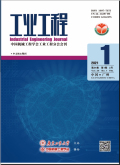工业工程2024,Vol.27Issue(3):31-42,12.DOI:10.3969/j.issn.1007-7375.230013
重复性项目前摄性调度优化方法研究
Proactive Project Scheduling Optimization of Repetitive Projects
摘要
Abstract
In order to cope with uncertain disturbance encountered in the construction process of repetitive projects,proactive scheduling optimization of repetitive projects is necessary to increase the capacity of project schedules to accommodate uncertainties.In this paper,the float relationships among linear,bar and block activities in repetitive projects is first analyzed based on linear planning.The selection ranges between buffers are determined according to floats.Then,a multi-objective proactive scheduling model is established with the objectives of project duration,cost and robustness.To address its NP-hard nature,a modified particle swarm optimization algorithm(i.e.,SA-PSOc)is designed,which incorporate simulated annealing algorithm to avoid particles easily falling into local optima.Algorithm testing shows that the modified algorithm has better global search ability and faster computational speed.Finally,the feasibility and effectiveness of the proposed proactive scheduling optimization model are verified by a case study of a repetitive project.Through simulation,it demonstrates that the proposed method consumes fewer buffers to ensure the project completion on time.Conclusion is made that when preparing a schedule,by increasing resources within a certain range,a better schedule can be achieve.关键词
重复性项目/前摄性项目调度/缓冲设置/粒子群算法(PSO)Key words
repetitive projects/proactive project scheduling/buffer settings/particle swarm optimization(PSO)分类
管理科学引用本文复制引用
周国华,夏晶..重复性项目前摄性调度优化方法研究[J].工业工程,2024,27(3):31-42,12.基金项目
国家自然科学基金重大专项资助项目(71942006) (71942006)
中国国家铁路集团有限公司科技研究开发计划资助项目(N2020G039) (N2020G039)

